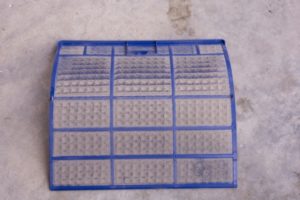
Indoor air quality is a subject homeowners in Brooklyn, NY are becoming more concerned about recently. There’s a good reason for it, too. The concentration of air pollution indoors can be two to five times as high as outdoors, according to a study by the Environmental Protection Agency.
Persons who deal with respiratory problems are more likely to experience an episode while at work or home than outside. One might be more at risk of respiratory infections and sinus infections while experiencing a rise in asthma or allergy attacks.
Thankfully, there are a number of measures homeowners can take to increase the air quality in their households. Focus on some of these areas if you’re trying to improve indoor air quality.
1. Reduce the Amount of Toxic Cleaning Products
 Many homeowners keep gallons of household cleaners throughout their abode. Lots of common cleaning products contain harsh chemicals, such as ammonia, chlorine, formaldehyde, phosphates and petroleum-based compounds.
Many homeowners keep gallons of household cleaners throughout their abode. Lots of common cleaning products contain harsh chemicals, such as ammonia, chlorine, formaldehyde, phosphates and petroleum-based compounds.
Even when not in use, these can have a hugely negative impact on your home’s air quality. These days, however, there are a number of eco-friendly products available on the market you can use to replace your current stock.
It’s also best to avoid buying cleaners that have clear health warnings on the package. Homeowners who embody a do-it-yourself spirit can also create their own cleaners using natural ingredients like water, baking soda, vinegar or lemon juice.
2. Houseplants Can Help Purify the Air
 A great way to spruce up your home while naturally cleaning up the air is by adding more houseplants. They can act as a natural air purifier and protect your home from airborne contaminants. The more plants you own, the better off you will be.
A great way to spruce up your home while naturally cleaning up the air is by adding more houseplants. They can act as a natural air purifier and protect your home from airborne contaminants. The more plants you own, the better off you will be.
But not all plants are created equal. Here are some of the most effective houseplants for clearing up the air: Peace Lily, Lady Palm, Bromeliad, Dracaena, Boston Fern, Spider Plant, Jade Plant and Aloe Vera.
3. Bring More Fresh Air into Your Home
 One way of boosting the air quality in your home without spending a penny is by simply opening a few windows. This allows fresh air to come in and toxic air to be pushed out.
One way of boosting the air quality in your home without spending a penny is by simply opening a few windows. This allows fresh air to come in and toxic air to be pushed out.
It’s important to create this ventilation while cooking, especially if you use a gas stove, as this can be a major source of air pollution.
Ventilation can also lower the amount of moisture in your home. If your bathroom has a fan, use it while taking a shower to reduce the condensation caused by steam and help put a stop to the growth of mold and mildew. If you’re in an area with high levels of outdoor air pollution, consider putting in trickle vents or exhaust fans to help circulate the air within your home.
4. Put in a New HVAC Filter Regularly
 If you live in a building with a central heating and air conditioning system, it should come with a filter. These are key in capturing any dust and debris that may enter your air supply and ensuring they don’t spread throughout your abode.
If you live in a building with a central heating and air conditioning system, it should come with a filter. These are key in capturing any dust and debris that may enter your air supply and ensuring they don’t spread throughout your abode.
Filters that become clogged and dirty, however, will no longer be able to trap harmful particles and will also affect the air flow. It’s best to check the filter every few months to find out whether or not it needs to be replaced.
Dealing with the dangers of poor indoor air quality is no joke, and all it takes is following a few simple steps to significantly reduce the risk. Following the above steps will help protect yourself and your loved ones.



